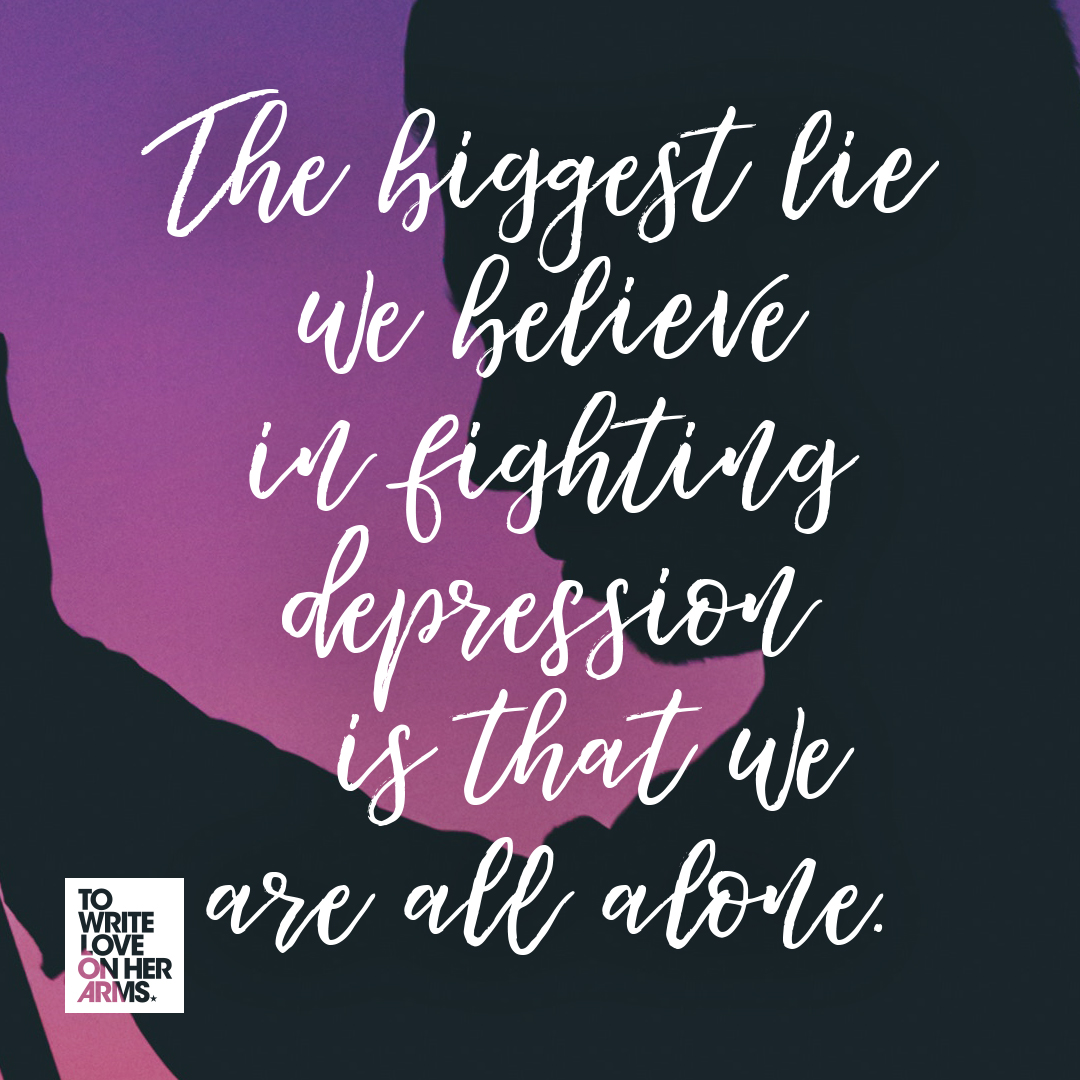Too often we hear from people who are worried that they can’t achieve their dreams or have a successful career because of their mental health issues. We hope our “Working It” interview series proves that it’s possible to do that and so much more.
You can read previous interviews here.
TWLOHA: For our readers who aren’t familiar with you or your work, can you tell us a little about who you are and what you do?
Hannah: Sure! I am an author, speaker, and founder of an organization called More Love Letters. We use the power behind social media to handwrite and mail love letters to strangers in need all over the world. This organization was nothing I ever planned to start, but it opened the door for so many other cool opportunities. I just wrapped work on my second book and spend a good amount of days traveling around the country and speaking at colleges and conferences. My heart is for investing in young leaders but also having real and honest conversations about mental health.
TWLOHA: How does mental illness affect your life and work?
Hannah: I am someone who deals with depression and anxiety. My first run-in with depression was my first year after college. I was living in New York City and, at the time, I had no idea what depression was or how it could affect me. My second round of depression happened in 2014. This depression was stronger than anything I’d ever experienced before. After this time with depression, I made steps and changes to reorient my life and work hard to be healthy.
TWLOHA: What steps do you take to manage your mental health?
Hannah: They were baby steps, but they all add up to something greater. I believe in finding a good counselor. For me, I had a strong support system and made the decision to go on medication. I am still on medication today, but I always say medication isn’t the answer to my problems; it simply does some of the heavy lifting for me so I can face what is really there. I eat pretty clean, and I exercise regularly. I am learning just how much the food I eat contributes to my moods and my mental state.
TWLOHA: What would you tell someone who doesn’t think they can manage their own schedule or support themselves while dealing with mental illness?
Hannah: It’s okay to ask for help. The biggest lie we believe in fighting depression is that we are all alone, off on some island. I had to humble myself and be willing to ask friends and family for support during my lowest times. I was surprised to see how many people show up when you call upon them. You have to be willing to ask for help through the storm.

TWLOHA: Do you ever feel wary about speaking so openly your mental health? If so, why did you decide to do so anyway?
Hannah: I was a little bit insecure at first because it’s such a vulnerable part of my story. However, I have seen so much good come from being honest about my story. If my story can help people heal then I am all for being vulnerable to it.
TWLOHA: Finally, is there anything you wish someone would have told you when you were struggling? Or something you’d like to share with our readers who are struggling right now?
Hannah: I wish I knew sooner how powerful language is. You have to be really careful with the things you say. I used to say I struggled or suffered from depression. I realized walking out of my depression that I was giving it too much power with my words. Now I say I “manage” or “deal” with my depression because that’s something I am actively doing every single day!
Kat
It’s taken me a long time to accept my journey with depression and anxiety. I see a counselor and take medication now. I’ve gained some courage to ask for help and support, but it seems that most of my loved ones have dismissed me or abandoned me during this dark time. The ones that remain don’t understand my journey. They would prefer that I “pray more” or “have more faith” or “move on” or “just snap out of it.”
I know that mental illness is not my fault, and I am often reminded that I don’t have to feel ashamed. I’m ready and willing to rebuild, but would prefer to do so in a new environment. My current community reminds me of painful memories and even triggers flashbacks. I know I can’t safely relocate until I am more stable, but I often lose hope when I consider how much I’ve lost (and how much of my life is on hold) because I’m waiting to “get better.”
I agree with you that language is powerful. A dear friend tells me to say positive things to myself and about myself during this time — even when I don’t “feel” them or believe them.
So, even though I have been struggling today, I was offered a moment of relief when I clicked on the TWLOHA website and read this interview. Thank you for posting it!
Jessica Schmitz
Um, I’d love to help with the love letters if you ever need an extra person…
Becky Ebert
Hi Jessica!
You can learn about ways to get involved with MLL on their website here: http://www.moreloveletters.com
Thanks!